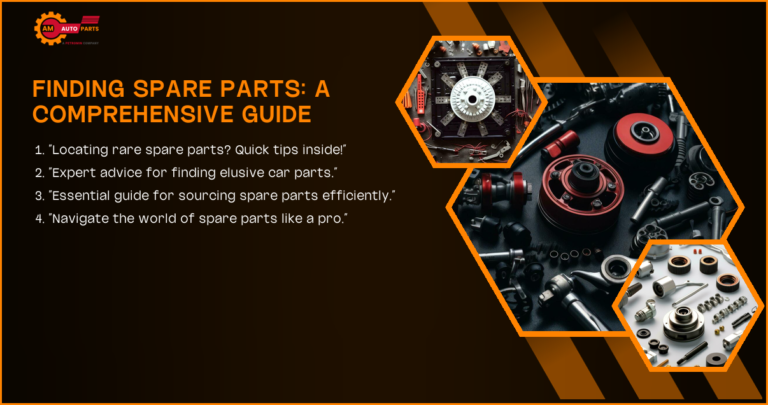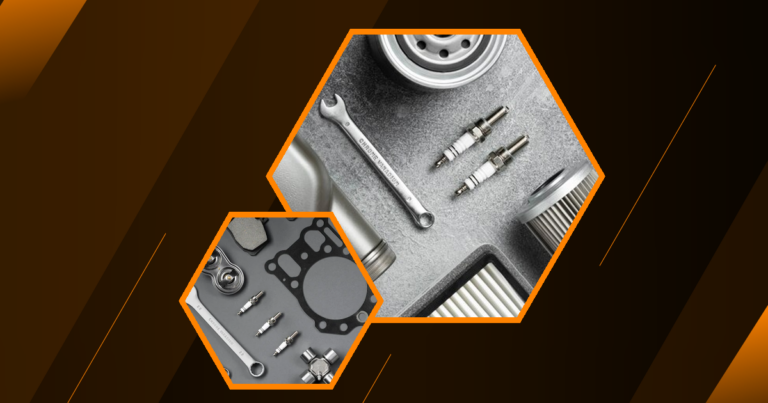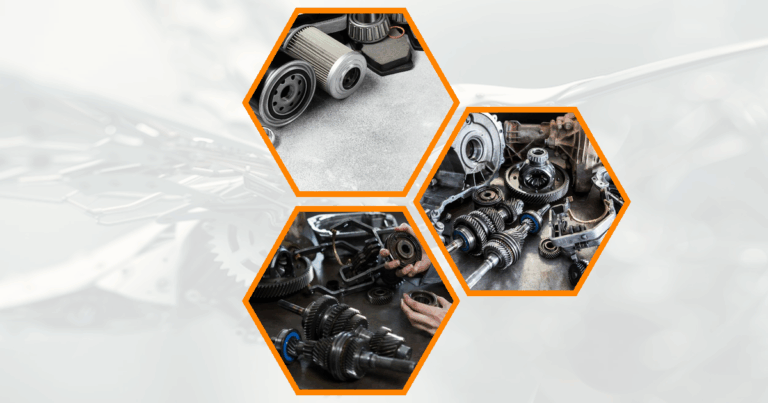In today’s fast-paced digital world, the auto parts industry is undergoing a significant transformation. The integration of B2B e-commerce and digital transformation is reshaping how auto parts are distributed and sold online. This shift is not just a trend but a necessity for businesses aiming to stay competitive and meet the evolving demands of their customers.
B2B E-commerce, Auto Parts, Digital Transformation, and Online Sales
The convergence of B2B e-commerce, auto parts, digital transformation, and online sales is creating a new landscape for the automotive aftermarket. As businesses embrace digital tools, they are finding innovative ways to enhance their operations and customer interactions.
The Evolving Landscape of Automotive Aftermarket
The automotive aftermarket is experiencing a dynamic shift as digital technologies become more prevalent. Companies are leveraging B2B e-commerce platforms to streamline their operations and reach a broader audience. This evolution is driven by the need for efficiency and the desire to provide a seamless customer experience.
Impact of E-commerce on Auto Parts Distribution
E-commerce is revolutionizing auto parts distribution by enabling businesses to reach customers globally. Online platforms allow for easy access to a wide range of products, making it convenient for buyers to find what they need. This shift is leading to increased sales and a more efficient supply chain.
- Global reach and accessibility
- Enhanced customer convenience
- Streamlined supply chain processes
Digital Transformation Strategies for Auto Parts Suppliers
Auto parts suppliers are adopting digital transformation strategies to stay competitive. By integrating advanced technologies, they can improve their operations and offer better services to their customers. These strategies include the use of data analytics, automation, and cloud-based solutions.
- Data-driven decision making
- Automation of routine tasks
- Cloud-based solutions for scalability
Advantages of B2B E-commerce Platforms for Auto Parts Manufacturers
B2B e-commerce platforms offer numerous advantages for auto parts manufacturers. These platforms provide tools and features that enhance business operations and customer interactions, leading to increased efficiency and sales.
Streamlined Inventory Management
B2B e-commerce platforms enable manufacturers to manage their inventory more effectively. With real-time updates and automated processes, businesses can reduce errors and ensure that products are always available when needed.
- Real-time inventory tracking
- Automated stock replenishment
- Reduced inventory errors
Enhanced Customer Experience
Providing an exceptional customer experience is crucial in the competitive auto parts industry. B2B e-commerce platforms offer personalized services and easy navigation, making it simple for customers to find and purchase products.
- Personalized product recommendations
- User-friendly interface
- Efficient order processing
Increased Market Reach and Sales Opportunities
By leveraging B2B e-commerce platforms, auto parts manufacturers can expand their market reach and tap into new sales opportunities. These platforms allow businesses to connect with a global audience and offer their products to a wider customer base.
- Access to global markets
- New sales channels
- Increased brand visibility
Key Features of Industry-Specific B2B E-commerce Solutions for Auto Parts
Industry-specific B2B e-commerce solutions are designed to meet the unique needs of the auto parts industry. These solutions offer features that enhance the buying and selling process, making it more efficient and effective.
Product Configurators and Fitment Tools
Product configurators and fitment tools are essential features of B2B e-commerce solutions for auto parts. These tools help customers find the right parts for their vehicles, reducing the risk of errors and returns.
- Accurate product selection
- Reduced return rates
- Improved customer satisfaction
Real-time Inventory Updates
Real-time inventory updates are crucial for maintaining accurate stock levels and ensuring that customers have access to the products they need. This feature helps businesses manage their inventory more effectively and avoid stockouts.
- Accurate stock levels
- Timely product availability
- Improved supply chain efficiency
Integration with ERP and CRM Systems
Integrating B2B e-commerce platforms with ERP and CRM systems allows businesses to streamline their operations and improve customer relationships. This integration provides a seamless flow of information, enhancing decision-making and customer service.
- Seamless data flow
- Enhanced customer insights
- Improved operational efficiency
Overcoming Challenges in Auto Parts B2B E-commerce Implementation
Implementing B2B e-commerce in the auto parts industry comes with its own set of challenges. Businesses must address these challenges to ensure a successful transition to digital platforms.
Data Management and Product Information
Managing data and product information is a critical challenge in B2B e-commerce implementation. Businesses must ensure that their data is accurate and up-to-date to provide a seamless customer experience.
- Accurate product data
- Consistent information updates
- Efficient data management processes
Logistics and Fulfillment Complexities
Logistics and fulfillment are complex aspects of B2B e-commerce in the auto parts industry. Businesses must develop efficient strategies to manage these processes and ensure timely delivery of products.
- Efficient logistics planning
- Timely order fulfillment
- Cost-effective shipping solutions
Resistance to Change within Organizations
Resistance to change is a common challenge when implementing digital transformation. Businesses must address this resistance by fostering a culture of innovation and providing training and support to their employees.
- Fostering a culture of innovation
- Providing employee training
- Encouraging adaptability
Leveraging AI and Machine Learning in Auto Parts B2B E-commerce
AI and machine learning are transforming the auto parts industry by providing advanced tools and insights. These technologies enable businesses to enhance their operations and offer personalized services to their customers.
Predictive Analytics for Inventory Forecasting
Predictive analytics is a powerful tool for inventory forecasting in the auto parts industry. By analyzing historical data, businesses can predict future demand and optimize their inventory levels.
- Accurate demand forecasting
- Optimized inventory management
- Reduced stockouts and overstocking
Personalized Product Recommendations
AI-driven personalized product recommendations enhance the customer experience by suggesting products that meet individual needs and preferences. This personalization leads to increased customer satisfaction and sales.
- Tailored product suggestions
- Enhanced customer satisfaction
- Increased sales conversion rates
Chatbots for Customer Support
Chatbots are an effective tool for providing customer support in the auto parts industry. These AI-powered assistants offer quick and accurate responses to customer inquiries, improving the overall customer experience.
- Instant customer support
- Accurate information delivery
- Improved customer engagement
The Role of Mobile Commerce in Auto Parts B2B Sales
Mobile commerce is playing an increasingly important role in B2B sales for the auto parts industry. With the rise of mobile devices, businesses must optimize their platforms to provide a seamless mobile experience.
Mobile-Optimized Platforms
Mobile-optimized platforms are essential for reaching customers who prefer to shop on their mobile devices. These platforms offer a user-friendly interface and easy navigation, enhancing the overall shopping experience.
- User-friendly mobile interface
- Easy navigation
- Enhanced mobile shopping experience
On-the-Go Order Management
On-the-go order management allows businesses to manage their orders from anywhere, at any time. This flexibility is crucial for maintaining efficient operations and providing timely customer service.
- Flexible order management
- Real-time order tracking
- Improved operational efficiency
Push Notifications and Alerts
Push notifications and alerts are effective tools for engaging customers and keeping them informed about their orders and promotions. These notifications help businesses maintain customer interest and drive sales.
- Timely customer engagement
- Increased customer retention
- Enhanced promotional effectiveness
Building a Successful B2B E-commerce Strategy for Auto Parts
Developing a successful B2B e-commerce strategy is crucial for businesses in the auto parts industry. This strategy should focus on identifying target markets, creating a user-friendly catalog, and implementing effective pricing strategies.
Identifying Target Markets and Customer Segments
Identifying target markets and customer segments is the first step in building a successful B2B e-commerce strategy. Businesses must understand their customers’ needs and preferences to tailor their offerings accordingly.
- Understanding customer needs
- Tailoring offerings to target segments
- Enhancing customer satisfaction
Developing a User-Friendly Online Catalog
A user-friendly online catalog is essential for providing a seamless shopping experience. Businesses must ensure that their catalog is easy to navigate and provides detailed product information.
- Easy navigation
- Detailed product information
- Enhanced shopping experience
Implementing Effective Pricing Strategies
Effective pricing strategies are crucial for attracting and retaining customers in the competitive auto parts industry. Businesses must develop pricing models that offer value to their customers while maintaining profitability. Automotive resilience strategies help car companies stay strong during tough times These plans make sure car makers can keep building vehicles even when problems happen Parts compliance guidelines Rules that tell us how to make sure parts meet safety and quality standards for products we use every day
Wheel guides automobile help cars stay on the right path They make sure vehicles move smoothly and safely on roads Counterfeit detection strategies help people spot fake money and products These methods use special tools and tricks to find copies that are not real
Automotive mechanism distinctions Cars have different parts that work together to make them move and steer while trucks often have stronger engines and special systems to carry heavy loads Camshaft engine component The
Suspension damping components help control how your car bounces and moves over bumps They make your ride smoother and more comfortable by absorbing shocks from the road Brake system differences Cars can have different types of brakes like disc brakes or drum brakes which work in unique ways to slow down or stop the vehicle
- Competitive pricing models
- Value-driven pricing strategies
- Increased customer loyalty
Future Trends in B2B E-commerce for the Auto Parts Industry
The future of B2B e-commerce in the auto parts industry is shaped by emerging technologies and trends. Businesses must stay ahead of these trends to remain competitive and meet the evolving needs of their customers.
Blockchain for Supply Chain Transparency
Blockchain technology offers enhanced supply chain transparency by providing a secure and immutable record of transactions. This transparency helps businesses build trust with their customers and improve supply chain efficiency.
- Secure transaction records
- Enhanced supply chain transparency
- Improved customer trust
Augmented Reality for Product Visualization
Augmented reality (AR) is transforming product visualization in the auto parts industry. AR technology allows customers to visualize products in real-world settings, enhancing their shopping experience and reducing the risk of returns.
- Real-world product visualization
- Enhanced shopping experience
- Reduced return rates
Internet of Things (IoT) Integration
The integration of IoT technology in the auto parts industry offers numerous benefits, including real-time data collection and analysis. IoT devices provide valuable insights that help businesses optimize their operations and improve customer service.
- Real-time data collection
- Enhanced operational efficiency
- Improved customer service
FAQs
What are the benefits of B2B e-commerce for auto parts suppliers?
B2B e-commerce offers numerous benefits for auto parts suppliers, including increased market reach and improved operational efficiency. By leveraging digital platforms, suppliers can connect with a global audience and streamline their operations. This shift leads to enhanced customer satisfaction and increased sales opportunities.
How can auto parts manufacturers improve their online sales strategy?
Auto parts manufacturers can improve their online sales strategy by focusing on customer experience and leveraging digital tools. By offering personalized services and optimizing their e-commerce platforms, manufacturers can attract and retain customers. Additionally, implementing effective pricing strategies and engaging marketing campaigns can drive sales growth.
What are the key differences between B2B and B2C e-commerce in the auto parts industry?
The key differences between B2B and B2C e-commerce in the auto parts industry lie in the target audience and transaction processes. B2B e-commerce focuses on business clients and involves larger transactions, while B2C e-commerce targets individual consumers with smaller purchases. Additionally, B2B platforms often require more complex features, such as bulk ordering and integration with business systems.






